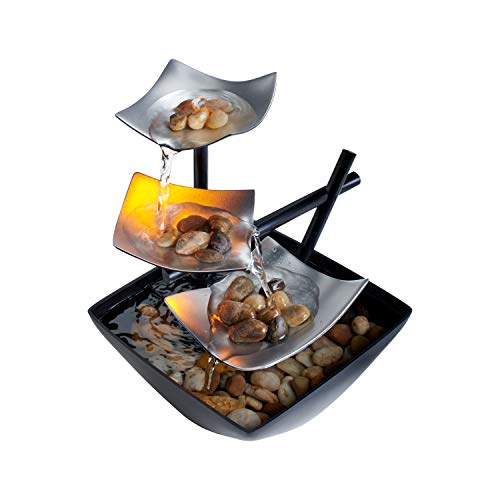Choosing the right fitness tracker can feel like navigating a maze with so many options out there. Two of the most popular contenders in the fitness tracking world are Fitbit and Garmin. Whether you’re a casual exerciser or a dedicated athlete, these brands offer a range of features that cater to different needs.
Fitbit is often praised for its user-friendly interface and stylish design, making it a favorite for those who want to track their daily activity with ease. On the other hand, Garmin is renowned for its advanced metrics and durability, appealing to serious fitness enthusiasts and outdoor adventurers. So, how do you decide which one is right for you? Let’s dive into the key differences and benefits of Fitbit and Garmin to help you make an informed choice.
Overview of Fitbit and Garmin
Fitbit and Garmin are leading brands in the fitness tracker market. Each offers unique features appealing to different user segments.

Fitbit: Features and Popularity
Fitbit devices are known for their sleek design and ease of use. Their interface is intuitive, making them ideal for casual exercisers. Models like the Fitbit Charge 4 and Versa 3 offer heart rate monitoring, sleep tracking, GPS, and smartphone notifications. Fitbit also has a large community and strong social features, which encourage user interaction and competition. Many users also appreciate Fitbit’s wide range of accessories, which allow for customization.
Garmin: Features and Popularity
Garmin devices cater to serious athletes and outdoor adventurers. Their products, such as the Forerunner 945 and Fenix 6, provide advanced metrics like VO2 max, lactate threshold, and recovery time. Garmin’s tracking accuracy is renowned, particularly for GPS and heart rate data. These devices are rugged and built to withstand harsh environments, appealing to hikers, cyclists, and runners. Garmin’s ecosystem integrates well with other fitness apps, providing a comprehensive training experience.
Design and Comfort
Fitbit and Garmin offer unique designs tailored to different user needs. Both prioritize comfort for everyday use.
Fitbit Wearables Design
Fitbit wearables feature sleek, modern designs. These devices use lightweight materials, often silicone and aluminum. The minimalist design enhances comfort and style. Displays are bright and easy to read even in sunlight. Bands are interchangeable, letting you switch styles effortlessly.
Garmin Wearables Design
Garmin wearables focus on durability with rugged designs. These devices employ stainless steel, fiber-reinforced polymer, and Gorilla Glass. They’re built to withstand harsh environments, ideal for outdoor and sports enthusiasts. Garmin offers multiple band options for comfort and practicality. Displays are clear and use transflective technology for readability.
Fitness and Health Tracking Capabilities
Fitbit and Garmin both excel in fitness and health tracking. Each brand offers distinct features catering to different user needs.
Tracking Accuracy in Fitbit
Fitbit provides reliable tracking metrics. It excels in tracking steps, heart rate, and sleep patterns. For casual fitness enthusiasts, its step counting and calorie tracking are sufficient. Its heart rate monitor uses PurePulse technology, which is dependable for most users.
Tracking Accuracy in Garmin
Garmin’s tracking accuracy stands out for serious athletes. It offers advanced metrics for running, cycling, and swimming. Garmin uses Elevate wrist heart rate technology, delivering precise heart rate data. Its GPS tracking is top-notch, making it ideal for outdoor activities.
Both Fitbit and Garmin present robust fitness and health tracking capabilities. While Fitbit suits casual users, Garmin is better for advanced athletes needing detailed performance metrics.
Battery Life and Connectivity
Battery Performance Comparison
Fitbit devices generally offer 5-7 days of battery life. Higher-end models with advanced features might last slightly less. Garmin trackers usually provide 7-10 days of battery life. Models with more functionalities, like GPS, may reduce battery duration.
Connectivity Options in Both Devices
Fitbit uses Bluetooth to connect with phones for notifications and data synchronization. Most models support Wi-Fi for quicker updates. Garmin also leverages Bluetooth for connectivity. Some Garmin models include ANT+ for connecting to external sensors and devices. Both brands offer mobile apps for data tracking and software updates.
Price and Value for Money
« Discover the Best Microwave Bacon Cooker at Target for Perfectly Crispy Bacon Every Time
Transform Your Vinyl Collection with These Genius IKEA Vinyl Storage Hacks »
Comparing Fitbit and Garmin, you’ll notice differences in pricing and the value each brand offers.
Pricing of Fitbit Devices
Fitbit devices range from $70-$330. Basic models like the Fitbit Inspire 2 start at $70. Mid-range options like the Fitbit Charge 5 cost around $130. Premium models like the Fitbit Sense are priced at $330.
Pricing of Garmin Devices
Garmin devices are priced between $130-$1,500. Entry-level models like the Garmin Vivosmart 4 start at $130. Mid-tier options like the Garmin Forerunner 245 cost approximately $300. High-end devices such as the Garmin Fenix 6 Pro can reach $1,000 or more.
User Experience and App Ecosystem
Fitbit and Garmin offer distinct app ecosystems that cater to different user needs.
Fitbit App Features
Fitbit’s app is intuitive. You’ll find it easy to navigate. It offers activity tracking, sleep analysis, and social challenges. Syncing is seamless, and the dashboard is clear. The app integrates with popular health apps like MyFitnessPal. Customizable reminders help you stay on track.
Garmin Connect Features
Garmin Connect is feature-rich. It suits serious athletes. Detailed metrics for running, swimming, and cycling are available. The app offers personalized training plans. Data syncing is fast. It integrates with platforms like Strava. Social features include leaderboards and friendly competition.
Conclusion
Choosing between Fitbit and Garmin boils down to your fitness goals and preferences. If you’re a casual exerciser looking for a sleek design and user-friendly interface, Fitbit might be your best bet. For serious athletes seeking detailed performance metrics and rugged durability, Garmin stands out as a top choice.
Both brands offer excellent health tracking capabilities, comfortable designs, and robust app ecosystems. Whether you prioritize advanced metrics or a more straightforward approach to fitness tracking, there’s a device that fits your needs. Happy tracking!















